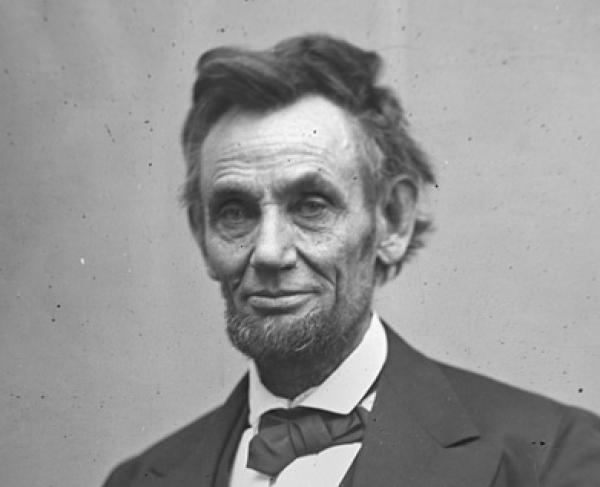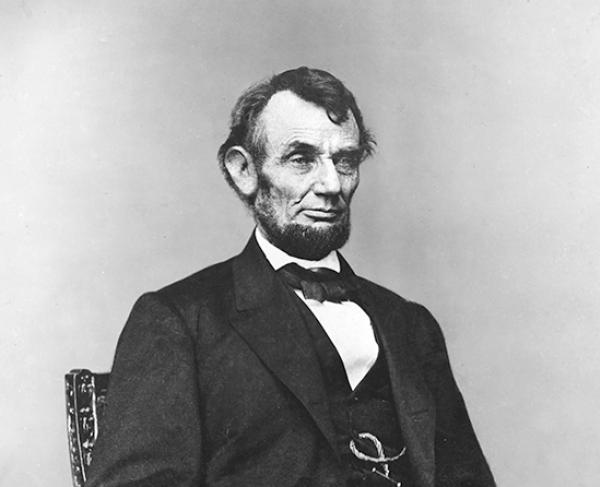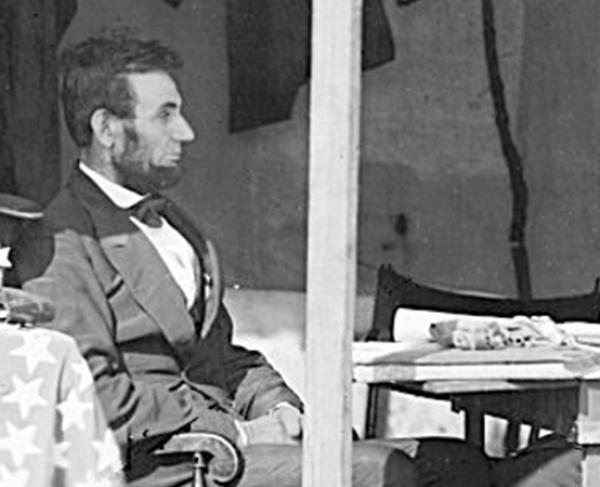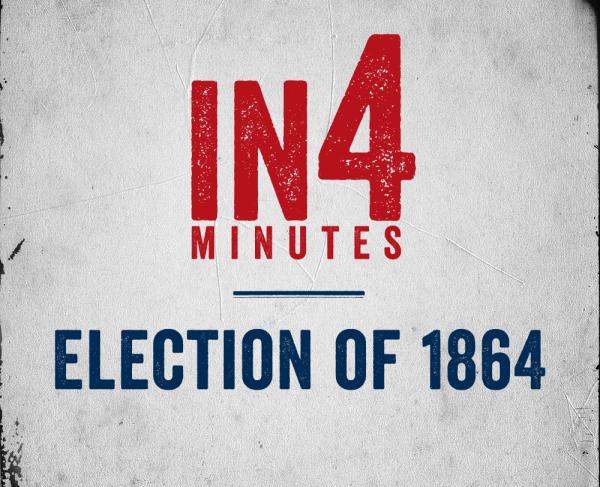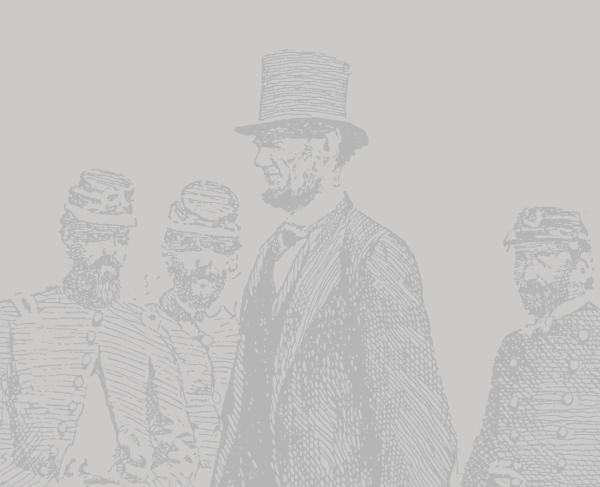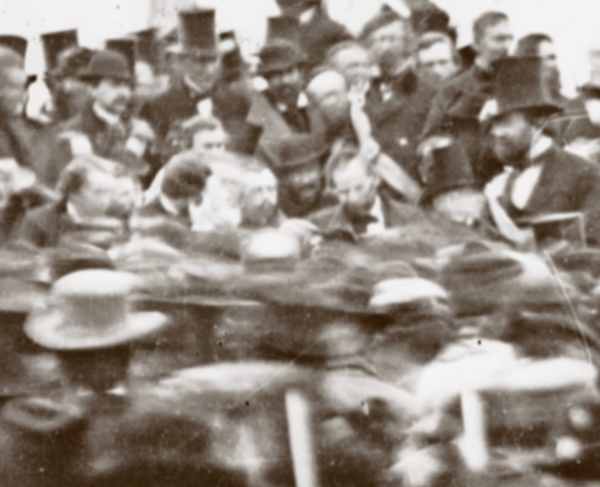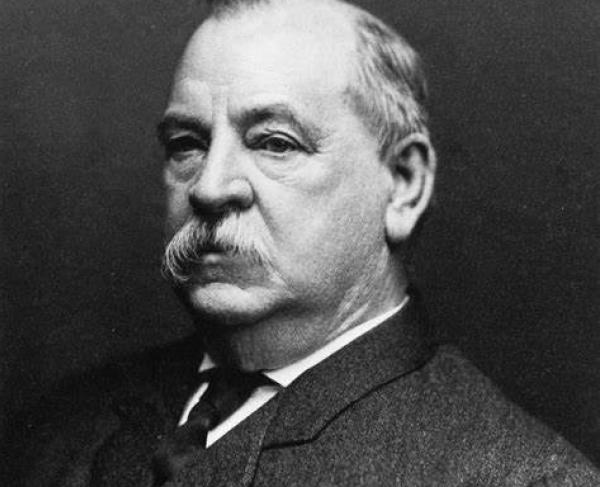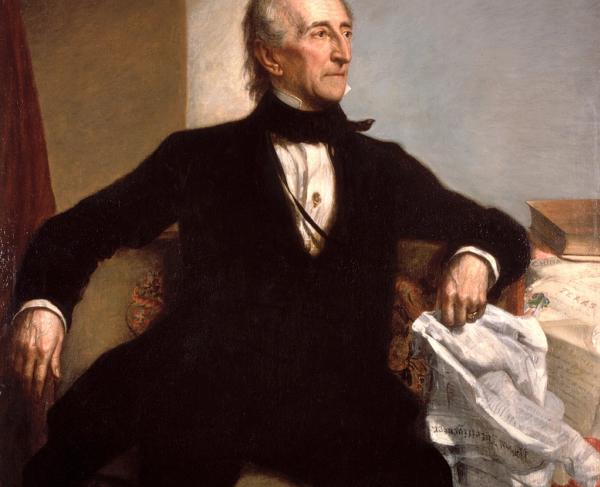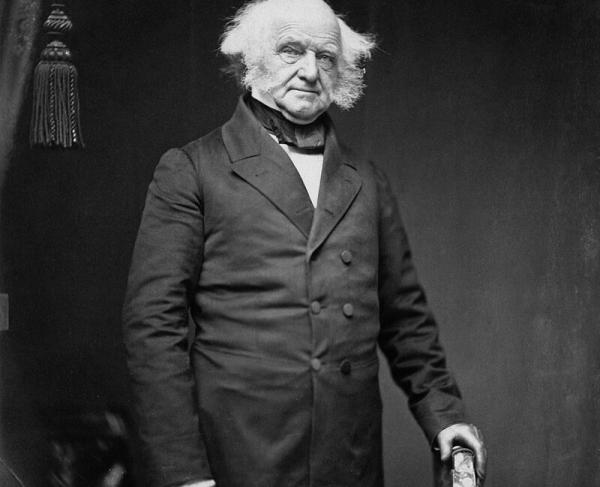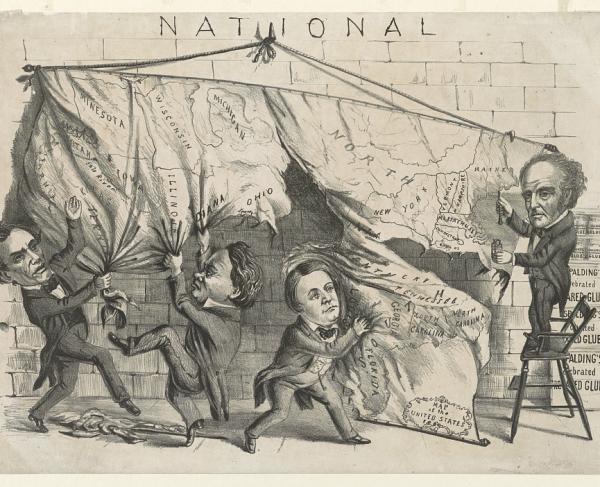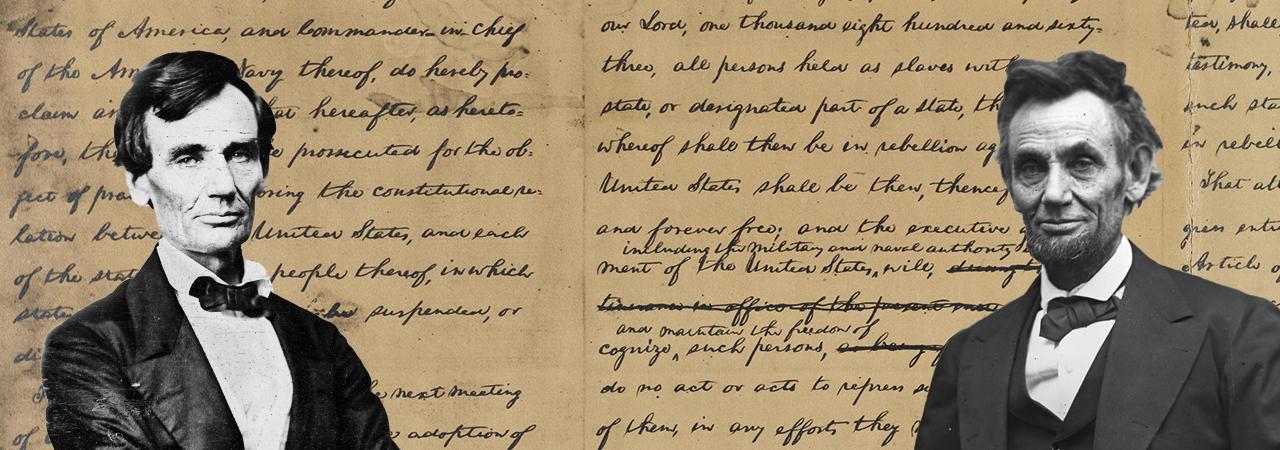
Abraham Lincoln
Commander in Chief
Abraham Lincoln was born on February 12, 1809. Sworn in on March 4, 1861, he faced a nation in crisis. Enraged by the election of a candidate committed to placing slavery on the path to “ultimate extinction,” the seven states of the Deep South had declared themselves seceded from the Union. They were soon joined by four more slave states from the Upper South. Guiding the nation through four years of bloody internecine conflict, Lincoln demonstrated hitherto untapped military instincts as he oversaw the war effort.
While he was personally committed to the ultimate destruction of slavery, he felt that as president, his constitutional duty to preserve the Union was paramount. Thus, in the early stages of the war, Lincoln avoided radical measures, desperate to keep a broad Unionist coalition intact. As the conflict continued, however, he began to act more openly against slavery, a shift that culminated with the Emancipation Proclamation, which declared that slaves held in areas that were in active rebellion as of January 1, 1863 would be “forever free” and directed the Union Army to liberate every slave it encountered as it penetrated deeper into Confederate territory.
Lincoln never lived to see the “new birth of freedom” promised by the Proclamation. In his final speech, delivered on April 11, 1865, he made public his belief that at the very least some African Americans should be granted the right to vote. It was the first time in American history that a sitting president endorsed voting rights of any kind for African Americans. In the audience was John Wilkes Booth. Enraged by the prospect of black citizenship, he declared, “Now, by God, I’ll put him through. That is the last speech he will ever give.” Three nights later, at Ford’s Theatre, Booth carried out his threat.
Explore Lincoln
Grover Cleveland
Julia and Ulysses S. Grant House
John Tyler
Abraham Lincoln/ Stephen Douglas Debate Site (1st Debate)
Martin Van Buren
The Election of 1860
More about Lincoln
- Abraham Lincoln's "House Divided" Speech »
- Evidence for The Unpopular Mr. Lincoln »
- The Emancipation Proclamation »
- Abraham Lincoln in Pop Culture »
- Abraham Lincoln's Duel »
- The Gettysburg Address »
- President Lincoln at the National Portrait Gallery »
- »
- Abraham Lincoln's Draft of the Emancipation Proclamation »
- Lincoln's Last Days »
- Giuseppe Garibaldi to President Lincoln »
- Lincoln's Blind Memo »
- Trailing Lincoln »
- Lincoln Memorial »
- Lincoln Home National Historic Site »
- Lincoln's Voice »
- Lincoln Tomb, Oak Ridge Cemetery »
- Political Generals of the Civil War »
- Abraham Lincoln Birthplace National Historical Park »
- Lincoln Boyhood Home National Memorial »
- Portraying Abraham Lincoln »
- The Gettysburg Address »
- How Well Do You Know the Emancipation Proclamation? »
- Ford's Theatre National Historic Site »
- How Lincoln Changed the World in Two Minutes »
